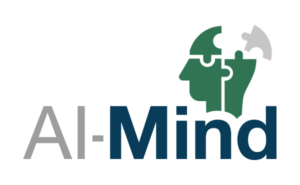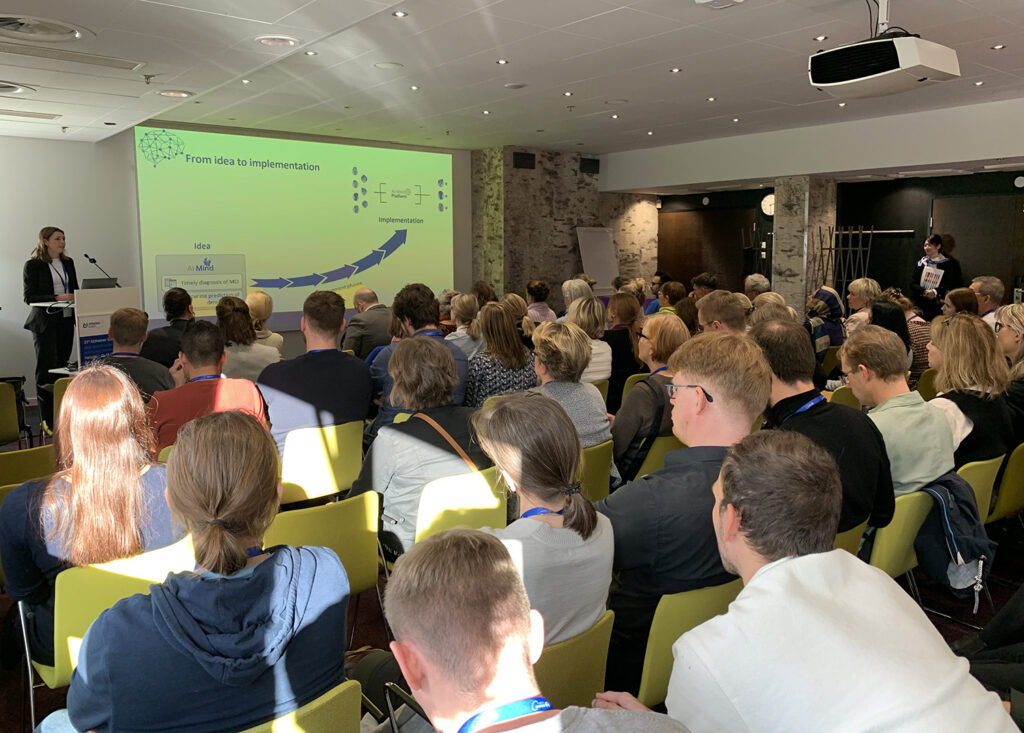The potential of artificial intelligence for dementia risk prediction
The AI-Mind project was well-represented at the 33rd Alzheimer Europe conference in Helsinki in October 2023, with an exhibition stand, several oral and poster presentations and a dedicated AI-Mind session held on 17 October. Chaired by Dr Ira Haraldsen, the session on “The Potential of Artificial Intelligence (AI) for Dementia Risk Prediction” attracted over 70 participants and featured thought-provoking presentations from experts in the field. Now, these valuable presentations are accessible to a global audience on the AI-Mind YouTube channel: https://www.youtube.com/@AIMind_eu/
Video 1: What are the challenges to early dementia detection? New paths to identify mild cognitive impairments.
Speaker: Dr Ira Haraldsen, Oslo University Hospital Norway
Embark on a journey with Dr Ira Haraldsen as she introduces the AI-Mind project, revealing innovative pathways for identifying mild cognitive impairment. MCI, a condition between normal brain ageing and dementia differs from case to case. Current screening falls short, leading to years of detection and diagnosis. AI-Mind promises to enhance healthcare systems, advancing preventive diagnostics and therapies for dementia. Learn about the transformative potential of AI technology in early detection and intervention for cognitive decline.
Video 2: What are the opportunities created by Artificial Intelligence in dementia research and diagnosis?
Speaker: Dr Ainar Drews, University of Oslo, Norway
As the term “AI” has many meanings to many people, Dr Ainar Drews elucidates the practical meaning of it in general, and in the context of AI-Mind in particular. He delves into the opportunities created by these techniques for the development of novel tools for the prediction, research and diagnosis of dementia in people living with mild cognitive impairment, and speaks on the vision for the AI-Mind tools in particular. Gain insights into the potential of AI, and its role in advancing our understanding of dementia when combined with a large data set collected within the ongoing AI-Mind study.
Video 3: How do you keep healthcare affordable, sustainable and of increasing quality?
Speakers: Robin Vermeulen, THE RADBOUD UNIVERSITY MEDICAL CENTER (RUMC) Netherlands and Eugenio di Brino, The Graduate School of Health Economics and Management (ALTEMS) Italy
In this video, Robin Vermeulen and Eugenio di Brino dive into the facets of Health Technology Assessment (HTA), including Early HTA and various methods for the assessment of AI-based technologies. Early HTA strives to inform early in the development process of medical innovations on the potential added value and the potential cost-effectiveness of implementing new technology. This information could help to steer the development of interventions in the most cost-effective solutions. HTA framework for AI was developed by the EU-funded, AI-Mind project and now the assessment – including the patient and social aspects – is underway.
Read more about AI-Mind on our projects overview page AI-MIND.EU/PROJECT/ and stay tuned for news on our most recent activities also via social media:

